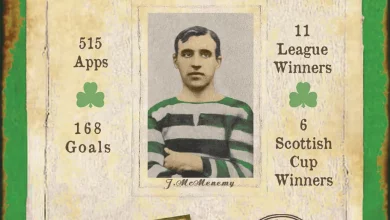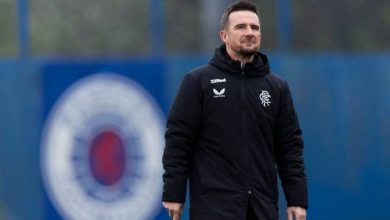The road to justice has been long, painful and insufferably cruel for victims of the Celtic Boys Club sexual abuse scandal.
Vindication of their case against the horrors perpetrated on them by coaches and officials who betrayed their trust has finally arrived in the shape of Celtic’s out of court financial settlement with the lawyers leading a class action for damages.
The trauma experienced by those who saw their dreams of stardom in the green and white hopes crushed by the predatory conduct of convicted paedophiles Jim Torbett, Frank Cairney and others can never be assuaged by any amount of money.
There will, however, be a sense of relief and closure of sorts as the battle to persuade Celtic to accept responsibility for their part in the wretched saga has finally been won.
From a purely corporate perspective, the long-standing insistence of Celtic plc that the Celtic Boys Club was a ‘separate entity’ was an argument their lawyers felt could maintain distance between them and the victims.
From a moral standpoint, it was never going to stand. There are surely those in the Celtic boardroom today who must regret not accepting much sooner that the club were honour bound to play a fuller part in addressing the complaints of those abused.
Celtic Boys Club was indeed formed independently of Celtic in 1966 but, from the outset, had the tacit backing of the senior club whose then chairman Bob Kelly granted permission to use their name.
Visit Advertiser websiteGO TO PAGE
If the link was never legally formalised, it was always clear and obvious. Celtic Boys Club were granted use of Celtic’s training ground at Barrowfield, a long goal kick away from Celtic Park.
While the players recruited by Celtic Boys Club were not under any contractual obligation to eventually sign for Celtic, an agreement was structured which saw the Boys Club under-16 team recognised as a pathway to the professional set-up at Celtic for those identified as good enough to make the grade.
Alan Brazil was among the young players who was preyed upon by Celtic Boys Club founder Torbett. The former Scotland striker, who gave evidence in court against Torbett in 1998, has always been clear in his understanding of being under the auspices of Celtic itself when he was making his way through the Boys Club ranks.
‘Certainly, when I think back to my time at Celtic Boys’ Club, there was never a feeling that there was much separation between it and the big club,’ said Brazil in 2018.
‘Absolutely, without a doubt, the belief was that playing for Celtic Boys’ Club was a stepping stone to Celtic Football Club.
‘You knew you were being watched by people from Celtic when you were playing for the Boys’ Club. You wore the same strip, your blazer had the crest.
‘At the end of the day, you felt like you were Celtic’s junior side. My captain was Roy Aitken, captain in the club’s Double-winning Centenary season in 1988.
‘Tommy Burns, Paul McStay, Charlie Nicholas, Davie Moyes – they all played for the Boys Club before becoming professionals at Celtic Park.
‘Legally speaking, the football club and the boys’ club are separate entities, which is the line Celtic are sticking to. But there were clear links. That can’t be denied.’
Denial, sadly, has been the obstacle which has forced the victims to endure such a long wait for justice.
Gordon Woods, who joined Celtic Boys Club in 1967 at the age of 12, was among the first of those whose vulnerability was odiously exploited by Torbett.
Courageously giving up his anonymity throughout the campaign which has ultimately forced the out of court settlement, Woods has provided chilling testimony of how Torbett would engineer situations for abuse after taking players out for a meal after training and then inviting them to his home under false pretences.
‘We started going to Torbett’s flat, which was then a high rise on Pinkston Drive in Glasgow,’ Woods recalled in 2020. ‘One night after training, two of us were helping out, encasing football medals in small plastic covers.
‘He had asked us to put on our football shorts while we worked, and then invited us to lie down for a rest in his bed. I was 13 at the time. I remember lying in the middle of the bed and then Torbett getting into bed with us.
‘He suddenly put his left hand down my shorts. I recall that I was terrified, but for some reason I could not get away. I was frozen there at that spot. There was a sick feeling in my stomach over what had just happened.
‘I was frightened to say anything to Torbett because the dream of playing for Celtic was still there, even though here I was all of a sudden in this nightmare. He could put the fear of God into you. I went home that evening and never said a word to anyone about it. When I went along to the next training session, Torbett acted as if nothing had happened at all.’
Torbett initially left Celtic Boys Club in 1974 under a cloud of suspicion which was not publicly acknowledged until the release of the Scottish FA’s independent review of sexual abuse in Scottish football four years ago.
It noted its concern that Torbett was later permitted to return to Celtic Boys Club, which he did in a new role as fundraiser and occasional coach.
In 1998, Torbett was found guilty of shameless and indecent conduct with three players between 1967 and 1974, including Brazil, at Glasgow Sheriff Court and given a 30-month prison sentence. It was only the start of a wave of criminal proceedings against the Celtic Boys Club paedophiles.
Torbett, who continued to protest his innocence, himself faced further allegations and in 2018 was found guilty of five other offences against three boys. He was sentenced to six years in prison.
Cairney, like Torbett a former coach and manager at the Boys Club, had been acquitted of five charges of shameless indecency at a 1998 trial due to lack of evidence. Ten years later, Cairney was found guilty of sexually abusing nine young players and given a four-year jail sentence.
In 2023, Cairney was deemed unfit to stand trial on three more charges but the presiding sheriff ruled there were no grounds for acquittal on the balance of probabilities.
Gerald King, a former Celtic Boys Club chairman, was given a three-year probation order and placed on the sex offenders register for five years when he was found guilty in 2019 of abusing five victims in the 1980s.
In the same year, Jim McCafferty, a former kit man and scout, pleaded guilty to 11 charges of abuse which included victims during his time at Celtic Boys Club. He died in prison three years ago.
As the Scottish FA’s independent review made clear, historical sexual abuse in Scottish football was widespread and certainly not limited to Celtic Boys Club.
There is no doubt, however, that the scale and extent of what occurred under the banner of an organisation so closely linked to Celtic constitutes the darkest chapter of a repugnant story.
Only the victims themselves can judge whether justice was worth the wait. At least it has finally been done.








